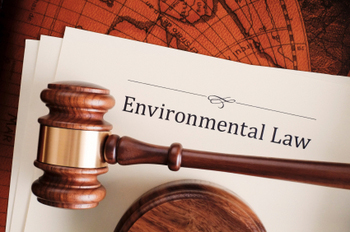ANALYZING THE LEGAL FRAMEWORK FOR ENVIRONMENTAL PROTECTION IN INDIA
Introduction: Environmental protection is a critical issue in today’s world, given the increasing concerns over climate change, pollution, and the depletion of natural resources. In India, a rapidly developing nation with a population of over 1.3 billion, the need for a robust legal framework for environmental protection is paramount. This article aims to analyze the legal framework in India for safeguarding the environment, focusing on key legislations and their effectiveness in addressing environmental challenges.
- The Constitution of India and Environmental Protection: The Constitution of India provides a solid foundation for environmental protection. Article 48A of the Constitution imposes a duty on the state to protect and improve the environment. Additionally, Article 51A(g) imposes a fundamental duty on every citizen to protect and preserve the environment. These provisions have laid the groundwork for subsequent environmental legislation in the country.
- The Environmental (Protection) Act, 1986: The Environmental (Protection) Act, 1986 is a crucial legislation that empowers the central government to take necessary measures for environmental protection and conservation. The Act establishes the Central Pollution Control Board (CPCB) and State Pollution Control Boards (SPCBs) to regulate and control pollution across the country. It also grants the government the authority to set standards for emissions and discharge of pollutants, and it outlines penalties for non-compliance.
- Water (Prevention and Control of Pollution) Act, 1974: The Water Act aims to prevent and control water pollution by regulating the discharge of pollutants into water bodies. It establishes the Central and State Pollution Control Boards specifically for water pollution control. The Act provides for the establishment of effluent treatment plants, monitoring of water quality, and the imposition of penalties for non-compliance.
- Air (Prevention and Control of Pollution) Act, 1981: The Air Act focuses on the prevention, control, and abatement of air pollution in India. It empowers the central and state governments to take measures to improve air quality and regulate industrial emissions. Like the Water Act, the Air Act establishes Central and State Pollution Control Boards to enforce its provisions. The Act provides for the prohibition of certain industrial operations, setting emission standards, and prescribing penalties for violations.
- Forest (Conservation) Act, 1980: The Forest Act aims to conserve forests and protect biodiversity in India. It requires prior approval from the central government for the diversion of forest land for non-forest purposes. The Act has played a significant role in preventing indiscriminate deforestation and ensuring sustainable forest management.
- Wildlife (Protection) Act, 1972: The Wildlife Act is a comprehensive legislation that provides protection to wildlife and their habitats. It prohibits hunting, capturing, or trading endangered species and establishes protected areas such as national parks and wildlife sanctuaries. The Act also regulates activities that may have an adverse impact on wildlife and prescribes penalties for offenses.
- Challenges and Effectiveness of the Legal Framework: Despite the existence of a comprehensive legal framework for environmental protection in India, challenges persist. Enforcement of environmental laws and regulations remains a significant concern, with instances of non-compliance and weak monitoring systems. Limited awareness and inadequate capacity at various levels pose obstacles to effective implementation. Additionally, the rapid pace of industrialization and urbanization in India often leads to conflicts between development priorities and environmental concerns.
Conclusion: India’s legal framework for environmental protection provides a solid foundation for addressing environmental challenges. The Constitution of India and key legislations such as the Environmental (Protection) Act, Water Act, Air Act, Forest Act, and Wildlife Act play a crucial role in safeguarding the environment. However, to enhance the effectiveness of these laws, it is essential to focus on strengthening enforcement mechanisms, raising awareness, and promoting sustainable development



